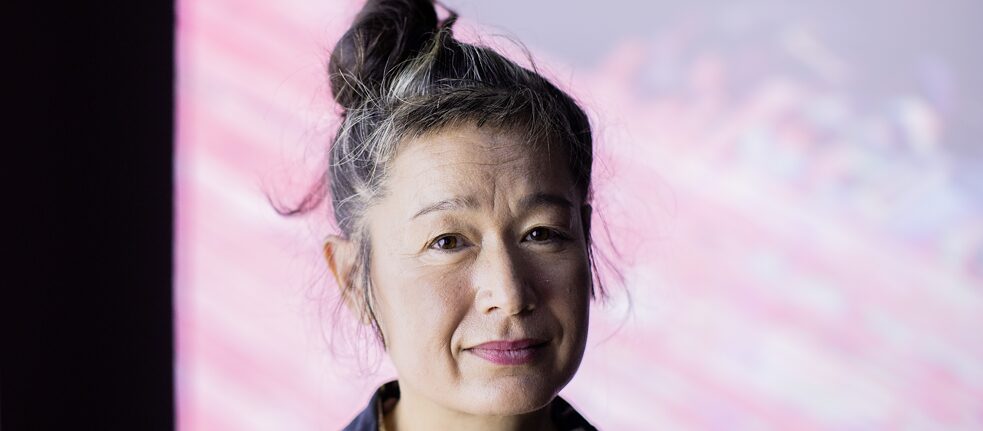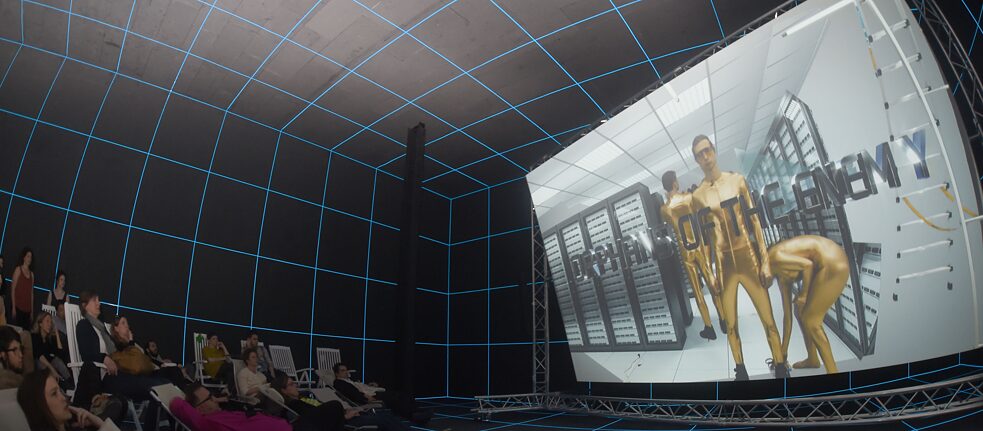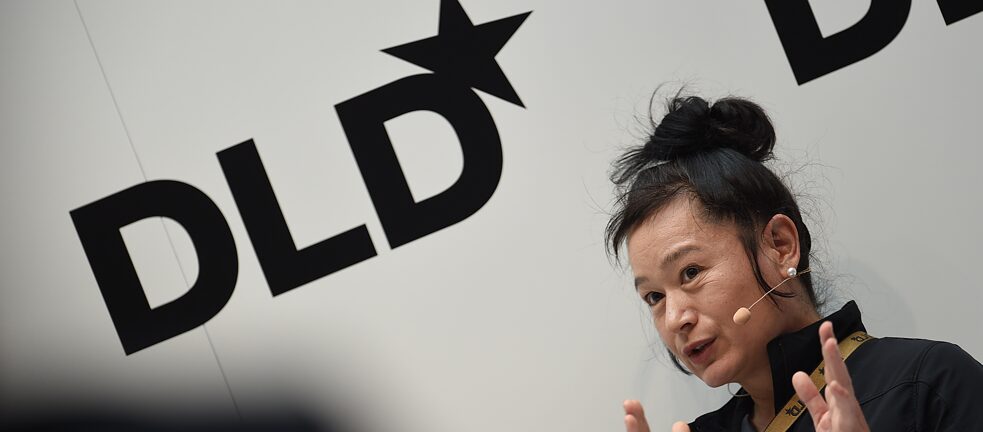Hito Steyerl
The essayist filmmaker

It is hard to confine Hito Steyerl to just one artistic genre: She is a filmmaker, visual artist and author who has made an international name for herself with her socially critical pieces.
By Romy König
Even Hito Steyerl’s academic career reflects how artistically and thematically open and multi-layered the artist is. She studied cinematography and documentary film directing at the Academy of Visual Arts in Tokyo and at the University of Television and Film Munich before going on to earn her doctorate in Philosophy at the Academy of Fine Arts in Vienna. Today she teaches New Media Art at the Berlin University of the Arts (UdK).
She took her first cinematic steps alongside Wim Wenders, working with the director on Until the End of the World (1990-1991). Today, essayistic documentary shorts and feature-length films are her preferred media of expression. Her pieces deal with topics such as racism and anti-Semitism in post-reunification Germany or cinematically reflect on the process of urban restructuring using Potsdamer Platz in Berlin as an example (Die leere Mitte, the Empty Centre, 1998).
Clever social analysis
In her more recent films and installations, many of which have been shown at film festivals and art exhibitions such as the documenta and the Biennale di Venezia, she explores globalisation, the interference between business and politics, and production and working conditions. Her films and video installations are clever and clear depictions of society, and not without provocation.
 Hito Steyerl’s “Factory in the Sun” video installation in the German pavilion at the Biennale di Venezia 2015.
| Photo (detail): © picture alliance/dpa/Felix Hörhager
As an author she also deals with social issues, writing about current issues like postcolonialism and feminism. Her central themes also include artificial intelligence, surveillance and data capitalism, and not just in art: She is also co-founder of the Research Center for Proxy Politics at the UdK, which conducts research on the functioning of media networks.
Hito Steyerl’s “Factory in the Sun” video installation in the German pavilion at the Biennale di Venezia 2015.
| Photo (detail): © picture alliance/dpa/Felix Hörhager
As an author she also deals with social issues, writing about current issues like postcolonialism and feminism. Her central themes also include artificial intelligence, surveillance and data capitalism, and not just in art: She is also co-founder of the Research Center for Proxy Politics at the UdK, which conducts research on the functioning of media networks.
“Occupies one of the most important international positions”
Most recently, Düsseldorf’s K21, a Kunstsammlung Nordrhein-Westfalen (the North Rhine-Westphalia Art Collection) location, honoured the now Berlin-based artist with a major retrospective exhibition. The Kunsthaus showed her cinematic work from 1994 to 2020 from short videos just a few minutes long to hour-long pieces, as well as the multimedia installation SocialSim, developed especially for the exhibition. The installation reflects on social dislocations and art production conditions during the pandemic, and it critically questions how digitality, simulation, and artificial intelligence influence artistic creativity. According to Kunstsammlung Nordrhein-Westfalen Director Susanne Gaensheimer, with pieces like SocialSim, Steyerl “currently occupies one of the most important international positions when it comes to reflecting on the social role of art and museums, experimenting with medial forms of presentation, and critically examining data and the use of artificial intelligence.”
 Both her art and her opinion are highly valued: Hito Steyerl on a panel at the DLD18 Conference (Digital-Life-Design) in Munich 2018.
| Photo (detail): © picture alliance/Andreas Gebert
Both her art and her opinion are highly valued: Hito Steyerl on a panel at the DLD18 Conference (Digital-Life-Design) in Munich 2018.
| Photo (detail): © picture alliance/Andreas Gebert